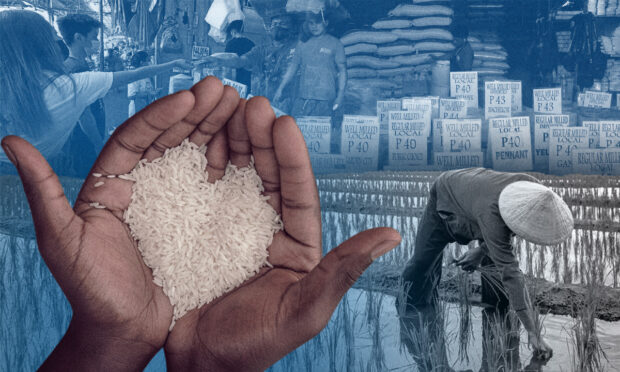The price of rice in the Philippines has been steadily increasing, making it unaffordable for many citizens, particularly those living in poverty. Despite President Ferdinand Marcos Jr.’s promise to lower the price to P20 per kilo, the reality is far from that. Retired professor Dr. Teodoro Mendoza explains that the era of cheap food is over, as the cost of rice production continues to rise.
Data from the Philippine Rice Research Institute shows that 20 years ago, well-milled rice was priced at P19.98 per kilo. However, today, a kilo of rice ranges from P40 to P52, with special and premium varieties even more expensive at P60 and P56 respectively. In recent months, the price of rice has increased by 4% to 14%, contributing to a 4.2% rice inflation rate in July.
Mendoza argues that the higher price of rice is necessary to ensure that local farmers are compensated fairly for their crops. He suggests a farm gate price of P25 per kilo to encourage farmers to continue producing rice. However, critics question why the market price is significantly higher than this proposed buying price.
Some attribute the rising prices to a lack of supply, with the lean months and India’s ban on non-basmati white rice exports playing a role. The reliance on rice imports and the limited procurement by the National Food Authority (NFA) also contribute to the problem. Private traders dominate the market, causing prices to soar.
To stabilize costs and make rice affordable for the poor, Mendoza calls for a revision of the Rice Tariffication Act. He proposes allowing the NFA to increase its supply from 30 to 60, or even 90 or 100 days. However, he emphasizes that an increased budget for the agency would be necessary to support these changes.
It is crucial to consider the well-being of local farmers and ensure they receive fair compensation. While a drop in retail prices may seem favorable, it would be an injustice to farmers if their income is compromised. Striking a balance between affordability for consumers and reasonable earnings for farmers is essential.
To address the issue of rising rice prices, the government needs to focus on increasing wages and improving livelihood opportunities for its citizens. The current situation, where real wages and family earnings fall short, exacerbates poverty in the country. By prioritizing the well-being of farmers and implementing policies that support their livelihoods, the Philippines can work towards a more sustainable and equitable agricultural sector.
Denial of responsibility! VigourTimes is an automatic aggregator of Global media. In each content, the hyperlink to the primary source is specified. All trademarks belong to their rightful owners, and all materials to their authors. For any complaint, please reach us at – [email protected]. We will take necessary action within 24 hours.


